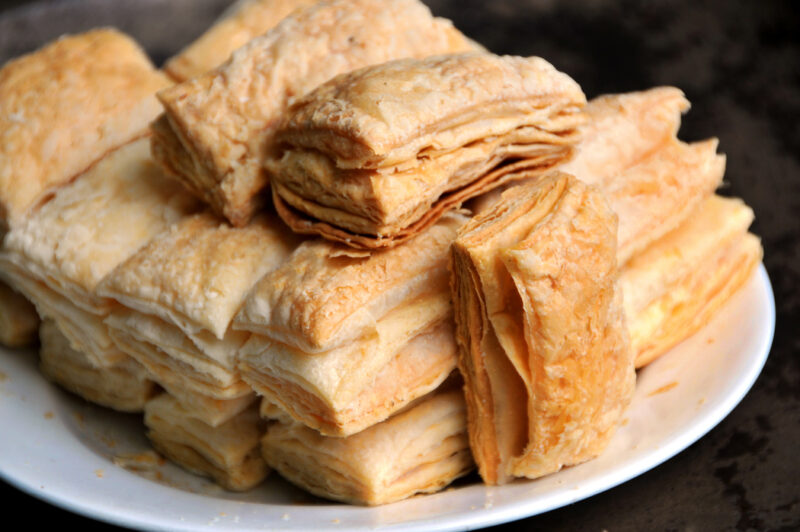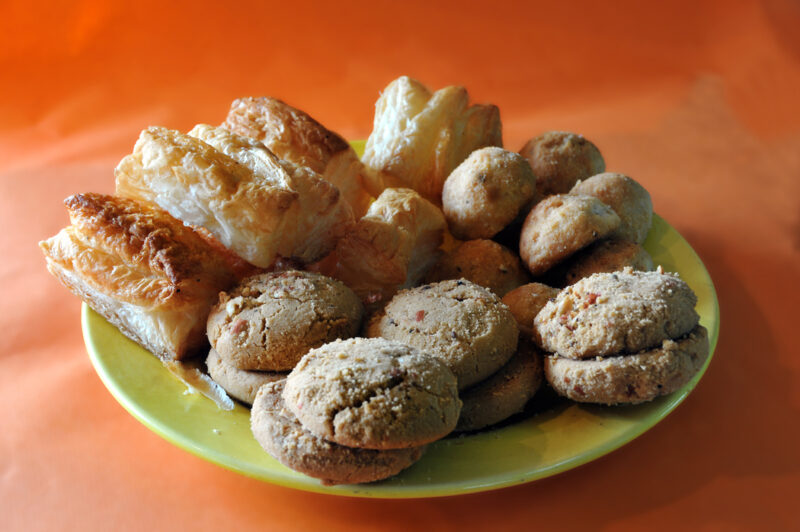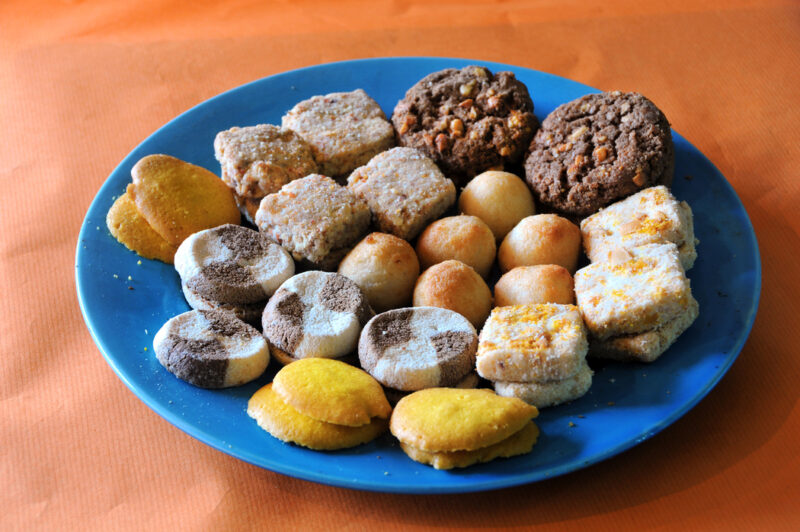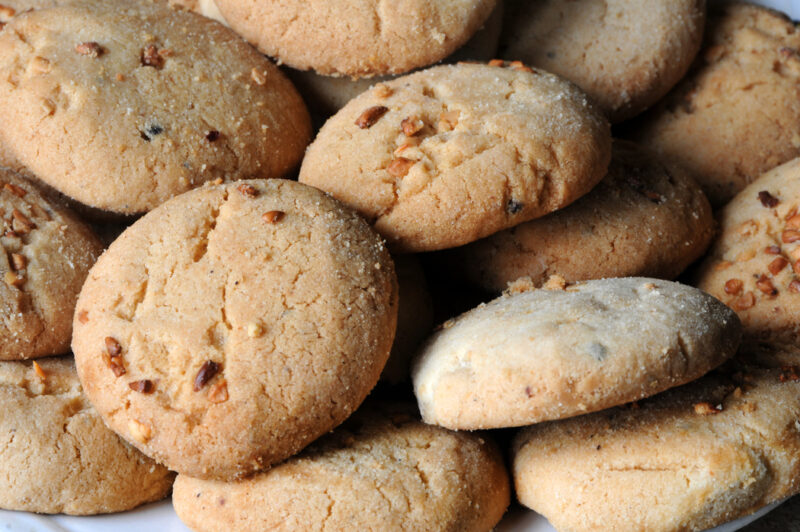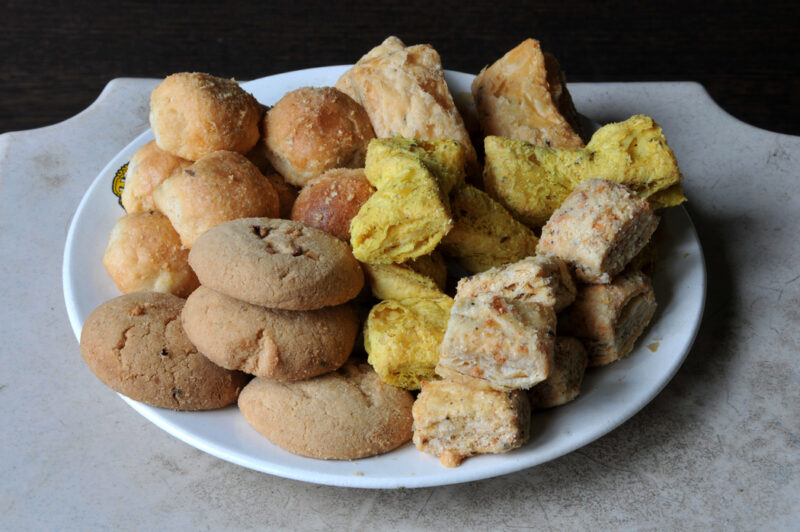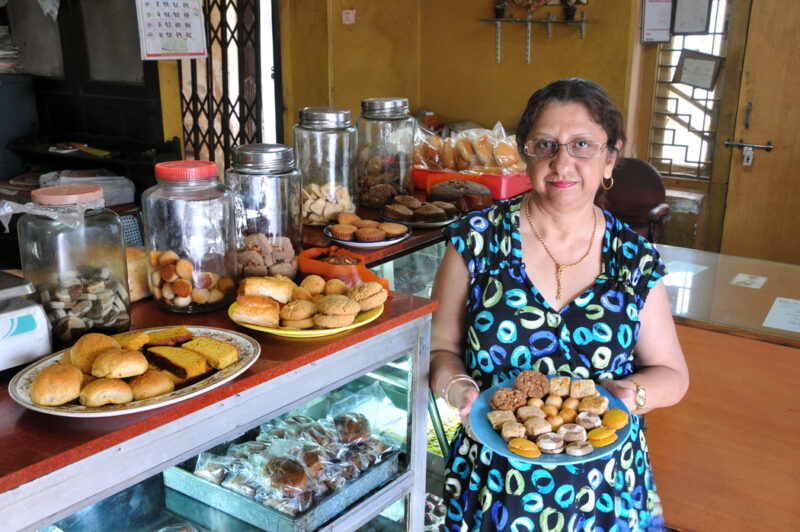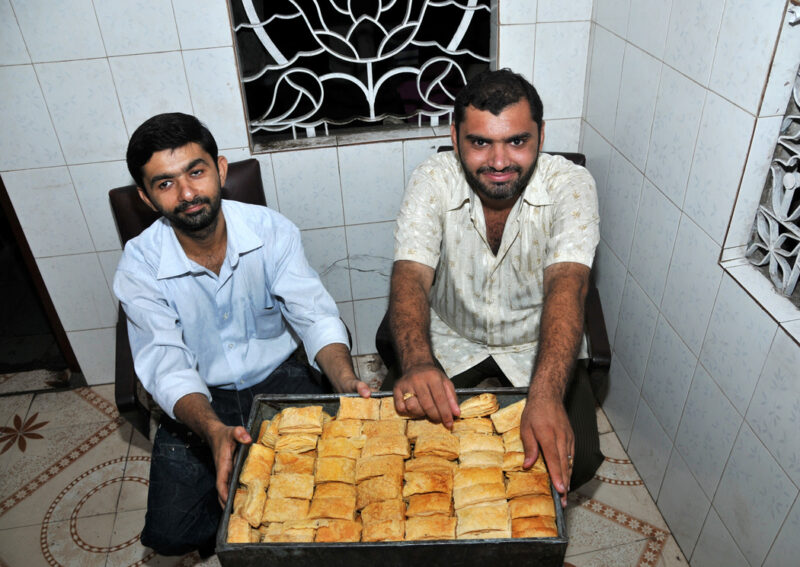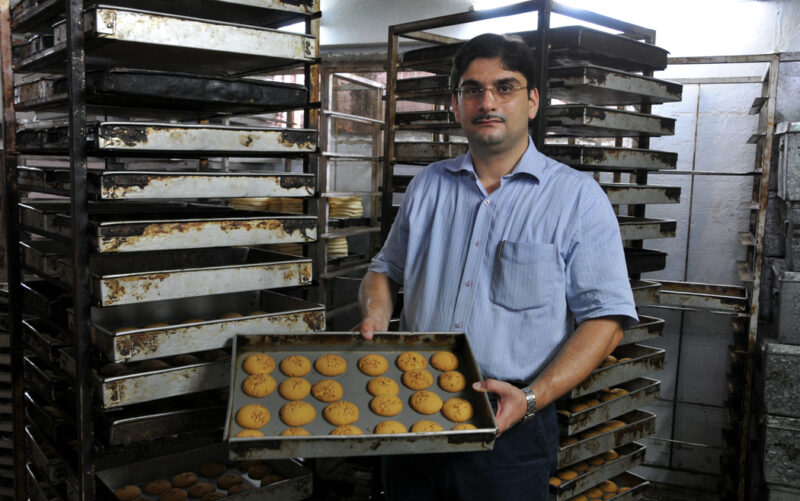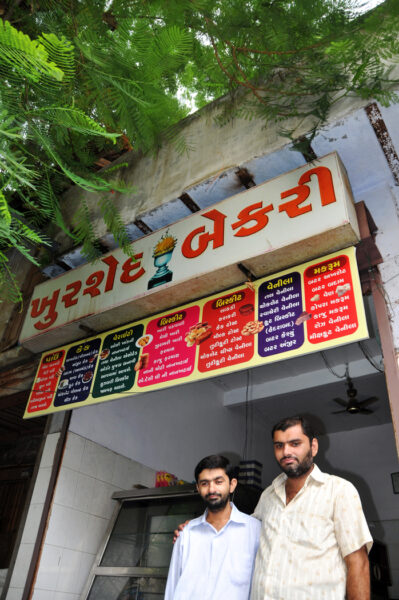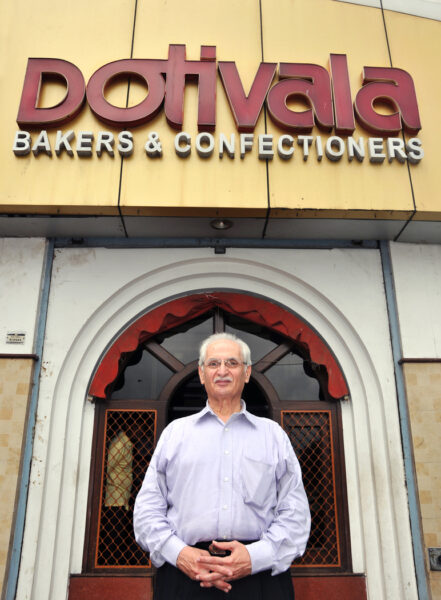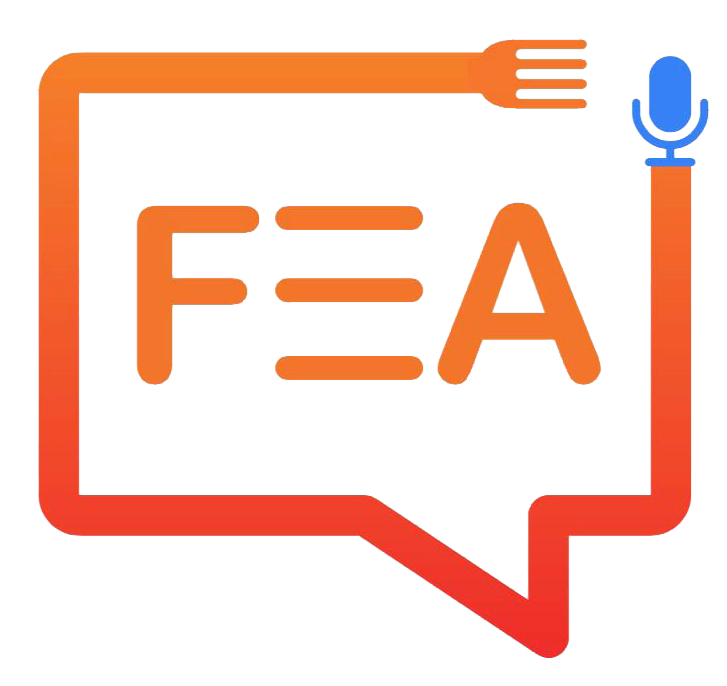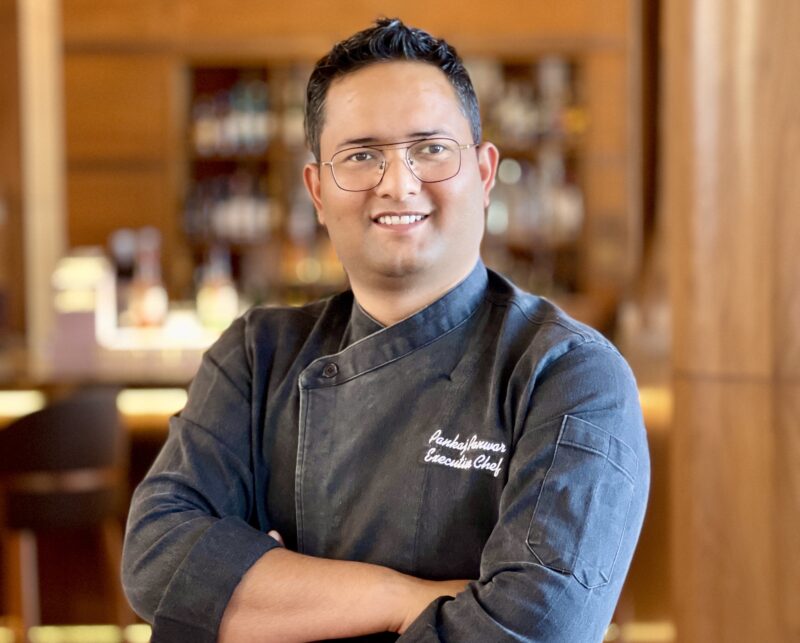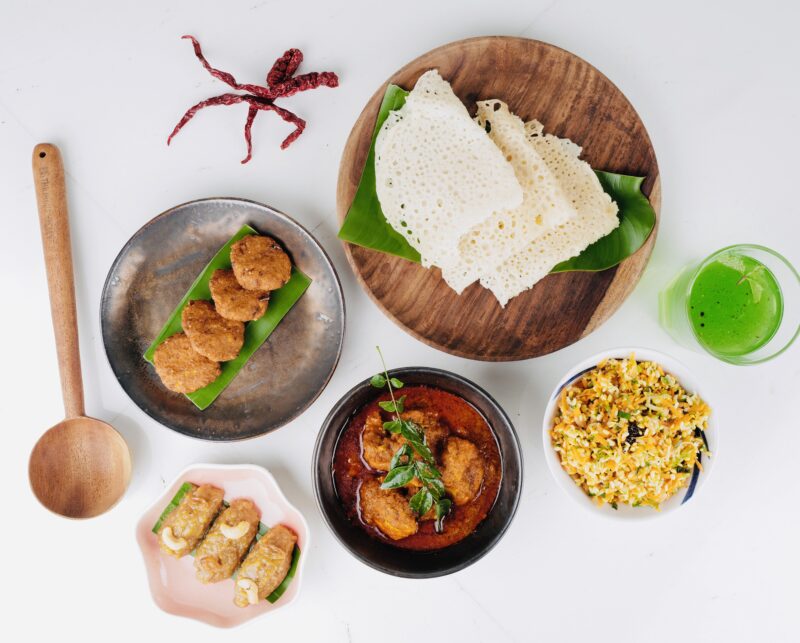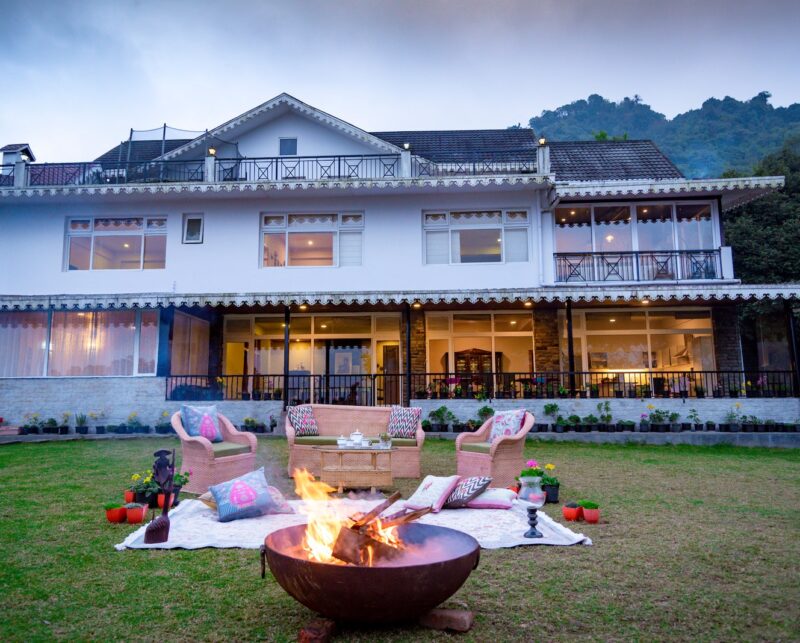PARSEE FAMILY-OWNED BAKERIES- AN INDO- DUTCH HERITAGE OF SURAT
Text Anil Mulchandani Photos Dinesh Shukla
Surat is well-known as the city of silks, satins, brocades and diamonds, but together with textiles and
jewellery, few leave the city without buying a box of nankathai, khari and butter biscuits. These
confections are the legacy of Parsee baker families who learnt the art of baking when the port city of
Surat was the thriving centre of British, Dutch, Portuguese, French, Persian and Armenian mercantile
colonies.
Says Jamshed Dotiwala, the owner of Dotivala Bakers & Confectioners, “ Surat district called Nanpura
held the 18 th century Dutch Warf, the Dutch Commodore’s bungalow and the Dutch factory, a self-
contained residential complex for Dutch factors or merchants. The Dutch employed five Parsee men to
work in their kitchens. They learnt to bake bread. Surat’s famous muslin cloth was used as the flour
sieve and the dough was made without any water. The dough was fermented with palm wine called
toddy, causing the dough to rise and making the bread soft when prepared. These breads were also
long-lasting. When the Dutch factory was closed in the 18 th century, one of the Parsee bakers named
Faramji Pestonji Dotivala continued to supply breads to the remaining colonials. We are his descendants
and we are proud of the heritage of our bakery business’’.
After many of the factories began to close down, Dotivala says they found a drop in the sale of breads.
“The leftover dried breads were sold cheap, which gained considerable popularity due to their lightness
and crispy texture. With the increasing demand, the bakers began to dry breads n the ovens specially to
achieve the desired dryness and texture. They were also shaped differently. Even today these biscuits
are made and are very popular, and are known as Irani biscuits’’, says Dotivala, “doctors used to
recommend these biscuits as an easily digestable, relatively low-calorie, energy foods , boosting their
popularity. Once the patient had recovered strength, he was advised to eat biscuits with fat so the
biscuits were made using excess shortening, giving birth to the Farmasu Surti Batasa or Butter Biscuits
that are now a Surat staple – Surti families whether Parsee, Hindu, Jain or Muslim, have these biscuits,
often dipped in `malai’ with their afternoon cuppa . The Parsee bakers baked the local sweets with
dough and pure ghee to make the short-bread like biscuits called Nankhatai. In the absence of flour
mills, the wheat was kept in storehouses sealed with cow dung, hand-milled by the women of the
families using manual grinding stones, and the resulting coarse flour was sieved through muslin to
separate the germ and bran. Refined flour and semolina were also obtained for the confections. When
prohibition was introduced in the state of Bombay, and later Gujarat., the toddy was replaced by a
fermenting agent made of hops and potatoes’’. At the time of independence, Dotivala says there were
three Parsee owned bakeries in Surat, and the number went up over the decades as others learnt the
art of baking and the bakery trade. “While many new bakeries have come up, we are still an iconic
brand in Surat with a two century heritage’’, says Dotivala, “this is because we have kept pace with the
times, launching new products in breads, cookies, cakes, etc, according to the demand and maintaining
production standards. We make breads for restaurants, fast food places and even street-food vendors,
My son, Cyrus, has studied food production in Sophia, Mumbai. We have a factory in Sachin, an
industrial area of Surat, and three retail outlets – besides our historic shop at Makkai Bridge, Nanpura,
on the historic Dutch Road, we have one each at Athwalines and Varachha Road in Surat. Our products
are also exported to African and North America countries – our khari (salted flaky biscuits) moulded in
the shape of a butterfly knot, well-known locally as Twisted Khari, has become popular in South Africa’’.
Saher bakery was started in 1803 by Khurshedji Saher at Makaipul near the Dutch Road as a hotel and
bakery but now only the bakery operates. Saher Bakery has for decades been known for its cashew and
vanilla, cookies, Surat’s sagla-bagla which is a mawa and pastry sweet, khummas breads, and various
Surti specialties. In the 1970s and 80s there were many Parsee bakeries in Surat, but now some of the
old Parsee bakery families have moved to other businesses or left Surat. Dotivala, Saher, Mazda,
Khurshed and Persian are the five remaining Parsee owned and run bakeries in the city.
Sarosh of Khurshed Bakery, also in Nanpura, says, “we are not as big as some of the other bakeries, but
our shop does have some quality conscious customers who love our handmade and coal-fire baked
products – we are specially proud of our mawa cakes. This business was begun by my grandfather in the
1960s and continued by my father who is still the head of our family. My brother, Cyrus, and I bake most
of the products. Our production is largely to meet orders and there is very limited stock at our shop’’.
This means, the brothers start work at the crack-of-dawn to meet the morning orders. “While mawa
cake from Iranis like B. Merwan & Co in Mumbai or Kayani’s cookies in Pune have become legendary, we
feel that the bakery products of Surat’s Parsee families need to become more famous,’’ says Sarosh.
two centuries and six generations due to our emphasis on high production standards and excellent
quality and long term straight forward dealings.



